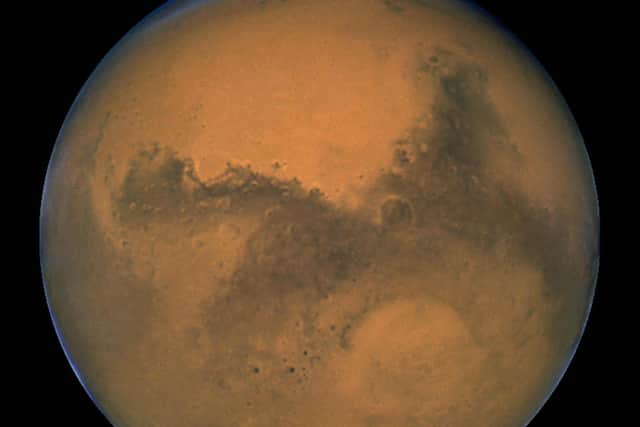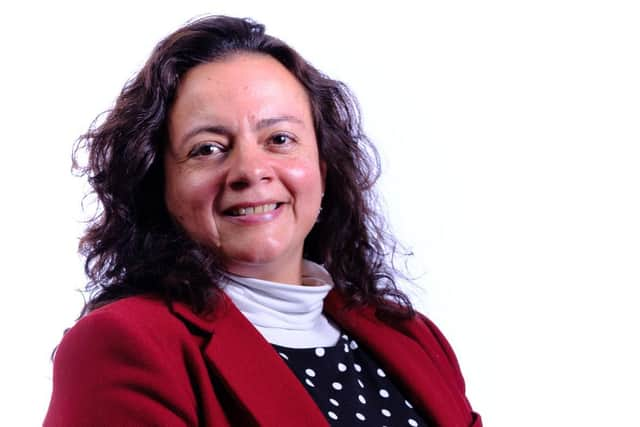Yorkshire university professor reveals role in NASA Mars mission
Professor Ana Cristina Costa, a behavioural psychologist at the University of Bradford, worked for the US space agency at Johnson Space Center in Houston, Texas.
She developed a study for NASA’s Mars mission, entitled: Team Trust In Future Exploration Long Duration Space Missions - which looks at the effects of prolonged isolation and confinement.


Advertisement
Hide AdAdvertisement
Hide AdEssentially it looks at how astronauts might react spending a long period away from Earth and an agonising 20-minute each-way delay in communications while on the Red Planet.
Professor Costa said one of the challenges of the Mars mission is ensuring that the crew continues to function well once NASA is no longer able to maintain an instant dialogue with them.
She said: "If the journey from here to Mars takes six months and they stay on the planet another six months and it’s six months to get back, that’s 18 months.
"Using current technology, it will take 20 minutes for a message to travel from Earth to Mars.


Advertisement
Hide AdAdvertisement
Hide Ad"This means crews need to be much more autonomous and this is a problem for NASA, because it is used to being able to monitor everything, from heart rates to blood pressure, then inform crew members about that. With the Mars mission, it won’t be able to do that in a meaningful time."
The solution, she says, lies in the trust dynamics of the crew, and she draws parallels with performances of large organisations, including the NHS.
One of her recommendations – training candidates then selecting them, rather than the other way around – has been taken on by NASA.
Prof Costa said: "For any mission to Mars to succeed, crews will need to trust and rely on each other more than previously.
Advertisement
Hide AdAdvertisement
Hide Ad"The role of trust is very important. If teams are becoming more autonomous, you have to have enough diversity not to create a 'groupthink effect' - where everyone agrees with everyone else.
"This is how mistakes are made. You have to create an environment which nurtures critical thinking. If you look at mistakes in aeroplane flights, there has usually been some sort of decision based on an assumption that something was going to happen or that somebody had done something and in that moment, we find there was a lack of critical thinking."
________________
Support The Yorkshire Post and become a subscriber today.
Your subscription will help us to continue to bring quality news to the people of Yorkshire. In return, you'll see fewer ads on site, get free access to our app and receive exclusive members-only offers. Click here to subscribe.
Comment Guidelines
National World encourages reader discussion on our stories. User feedback, insights and back-and-forth exchanges add a rich layer of context to reporting. Please review our Community Guidelines before commenting.
